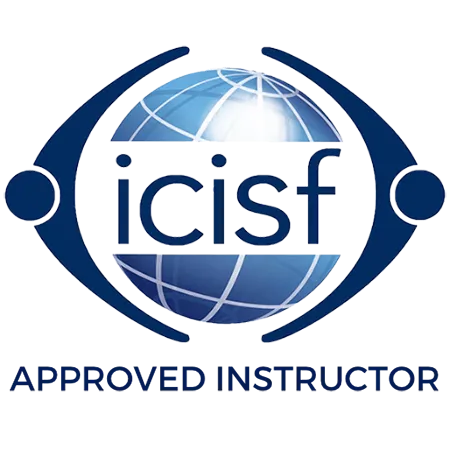Critical Incident Stress Management
Critical Incident Stress Management (CISM) training equips first responders and other frontline professionals with the essential skills to manage and recover from traumatic events, ensuring their mental and emotional well-being.
What is Critical Incident Stress Management?
Critical Incident Stress Management (CISM) is an evidence-based protocol designed specifically to help first responders and other frontline professionals deal with the emotional impact of traumatic events. This program includes various support methods, such as education before incidents, peer support during the event, and follow-up care afterward. The goal of CISM is to reduce the emotional and mental health effects of critical incidents like natural disasters, accidents, or violent events by providing timely and effective support.
CISM combines peer support and professional help to assist individuals in processing their experiences, understanding their reactions, and developing coping strategies. This program not only offers immediate crisis intervention but also promotes long-term resilience and recovery. By using CISM, organizations can create a supportive environment where first responders feel understood and cared for, which helps them perform their duties better and maintain their overall well-being.
What are Critical Incidents?
Critical incidents are unexpected and traumatic events that have the potential to cause significant emotional and psychological distress. These incidents can include significant events involving children, personally threatening situations, natural disasters like hurricanes, earthquakes, and floods, as well as man-made events such as accidents, violent attacks, or large-scale emergencies. First responders, such as police officers, firefighters, and medical personnel, often encounter these situations, which can be overwhelming and challenging to handle.
These events are called critical incidents because they disrupt normal functioning and can lead to severe stress reactions. The intense nature of these incidents can affect a person’s mental and emotional well-being, making it difficult to cope. The impact of critical incidents can be immediate or delayed, affecting not only the individuals directly involved but also their families and colleagues. Proper support and intervention are crucial to help those affected manage their stress and recover from the experience.
Examples of Critical Incidents in the Workplace
Public safety professionals, emergency services in hospitals, EMS, fire and police are most susceptible to critical incidents due to their frequent exposure to high-stress, traumatic situations. Exposure to these types of incidents often results in psychological injury such as Acute Stress and may result in Post Traumatic Stress Disorder (PTSD).
Line of duty death or injury (first responders)
Serious accidents or injuries at work
Workplace violence
Chronic job-related stress (emergency services, medical field, etc.)
Robbery, workplace crime
Suicide or death of a colleague
Workplace fatality
Terrorist activities
Natural disasters such as fires, floods, hurricanes, etc.
What are the Components of CISM?
Critical Incident Stress Management is a comprehensive, integrated, systematic, and multi-component crisis intervention program.
Most CISM programs contain twelve primary components or ‘tactics.’ They are:
Pre-event preparation, education, training, planning, and policy development
Assessment procedures
Strategic planning procedures
Individual crisis intervention support actions
On-scene support services (advice and consultation to supervisors, assistance to individuals acutely impacted by the traumatic event and care for primary victims until other resources are mobilized)
Supportive and informational Rest, Information, and Transition Services (RITS) {formerly known as “demobilization’} of large groups of staff members or operations personnel after a disaster
Crisis Management Briefing (CMB) – CMB informational sessions are used for various populations and group sizes particularly if there are large numbers gathered together in one area.
Immediate Defusing, on the same day as the incident, for homogeneous (similar) groups who have had about the same level of exposure to a traumatic event
Critical Incident Stress Debriefing (CISD) for homogeneous (similar) groups several days after their exposure to the same traumatic event
Significant other support services (family support, education, individual support, group support, etc.)
Follow-up services (phone calls, visits to the work site, group meetings, individual consultations, etc.)
Referral services for those who need more assistance
Many CISM programs also have a chaplain/clergy crisis intervention component added to their list.
What are the Benefits of CISM?
Crisis intervention peer support teams offer numerous advantages for both individuals and organizations. By providing a structured approach to handling the aftermath of traumatic events, CISM helps first responders and other frontline professionals maintain their mental health and well-being. This support system not only benefits the individuals directly involved but also strengthens the entire organization.
Benefits to Individuals
Improved Mental Health: CISM helps reduce the immediate and long-term psychological effects of critical incidents, promoting better mental health.
Enhanced Resilience: By teaching coping strategies, CISM equips individuals to handle future stressors more effectively.
Faster Recovery: Timely support and intervention help individuals recover more quickly from traumatic events.
Increased Job Satisfaction: Feeling supported in their roles can lead to higher job satisfaction and a sense of value and purpose.
Reduced Risk of Burnout: Ongoing support and stress management can lower the risk of burnout and related issues.
Benefits to Organizations
Stronger Team Cohesion: A supportive environment fosters better teamwork and cooperation among staff.
Stronger Team Cohesion: A supportive environment fosters better teamwork and cooperation among staff.
Improved Performance: Employees who feel supported are more likely to perform well and remain focused on their tasks.
Lower Turnover Rates: Providing mental health support can reduce turnover and the associated costs of hiring and training new staff.
Enhanced Reputation: Organizations that prioritize their employees’ well-being are often seen as more attractive places to work.
Proactive Risk Management: Implementing a CISM peer support program demonstrates a commitment to addressing and managing the risks associated with critical incidents.
Take a Look at our Course Catalog
Explore our course catalog to find the right training programs to support and strengthen your team.
Caring for one another. It's what it's all about.
Schedule a complimentary consultation and learn how our peer support and CISM training programs can benefit your organization. Let us help you create a supportive and resilient work environment.
© 2024 The Stress Care Doc, LLC. | All Rights Reserved


